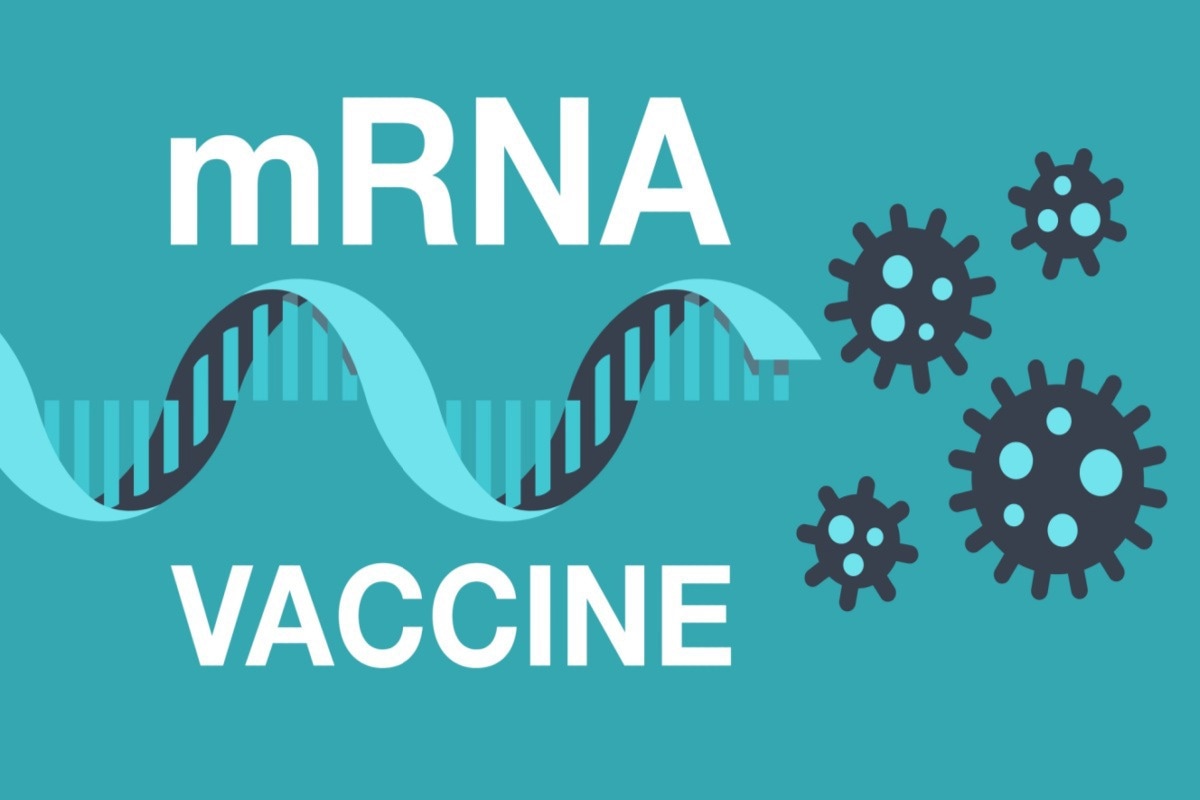Scientists from the USA and Germany have recently compared the immune kinetics of mRNA-based vaccines with other types of vaccines, including DNA, protein, and adenoviral vector-based vaccines.
 Study: mRNA vaccines induce rapid antibody responses in mice. Image Credit: Dmitry Kovalchuk/Shutterstock
Study: mRNA vaccines induce rapid antibody responses in mice. Image Credit: Dmitry Kovalchuk/Shutterstock
Background
The novel mRNA vaccines work by introducing a small piece of viral antigen-specific mRNA sequence in the body, which is subsequently translated to produce the viral antigen and induce virus-specific immune responses. These vaccines can be developed and produced rapidly, which makes them suitable candidates for controlling infectious disease outbreaks, including the coronavirus disease 2019 (COVID-19) pandemic.
During the COVID-19 pandemic, two mRNA vaccines were developed by Pfizer/BioNTech and Moderna. In both clinical trials and real-world conditions, these vaccines have shown high protective efficacy against severe acute respiratory syndrome coronavirus 2 (SARS-CoV-2), the causative pathogen of COVID-19.
In the current study, the scientists have compared the immune kinetics of SARS-CoV-2 spike protein-expressing mRNA and DNA vaccines in mice. Moreover, they have compared the immune kinetics of mRNA, DNA, protein, and adenovirus vector vaccines developed against the envelope protein of human immunodeficiency virus 1 (HIV-1).
Study design
The immune kinetics of mRNA- and DNA-based COVID-19 vaccines were determined by intradermally or intramuscularly immunizing the mice. Both vaccines contain full-length pre-fusion-stabilized spike protein of SARS-CoV-2 as vaccine antigens.
Similarly, immune kinetics of HIV-1 vaccines was determined by immunizing the mice with different types of vaccines (mRNA, DNA, protein, and adenoviral vector vaccines) expressing the same envelop protein of HIV-1.
Antibody response to mRNA COVID-19 vaccine
The estimation of spike-specific binding antibody response revealed detectable serum titers at day five following intradermal as well as intramuscular immunization. However, the antibody response was comparatively higher after intradermal immunization. In contrast to the mRNA vaccine, the DNA vaccine failed to induce detectable antibody titers at this early time point.
The mice immunized with DNA vaccine showed detectable antibody titers on day 14. However, the response was lower than that induced by the mRNA vaccine. At this time point, the mRNA vaccine induced a dose-dependent antibody response, irrespective of the route of administration.
The antibody titers induced by mRNA and DNA vaccines became comparable at day 21 post-immunization.
Regarding neutralizing antibody response, the findings revealed that both intradermal and intramuscular mRNA vaccination induces detectable anti-spike neutralizing antibodies at day five post-immunization. Similar to binding antibody response, the intradermal route of vaccination showed higher potency in inducing neutralizing antibody response.
At day seven post-immunization, the neutralizing antibody response induced by the mRNA vaccine remained significantly higher than that induced by the DNA vaccine. Both antibody responses became comparable at day 21.
Innate immune response to mRNA COVID-19 vaccine
The innate immune responses to both mRNA and DNA COVID-19 vaccines were determined by measuring plasma levels of cytokines and chemokines at hours 5 and 24 post-immunization.
The findings revealed that compared to the DNA vaccine, the mRNA vaccine induces significantly higher levels of cytokines that are responsible for B cell proliferation and differentiation and antibody production, such as interleukin 5 (IL-5) and IL-6.
Similarly, the mRNA vaccine showed higher efficacy than the DNA vaccine in inducing plasma levels of certain chemokines that are vital for the activation and maturation of antigen-presenting cells, such as monocyte chemoattractant protein-1 (MCP-1), macrophage inflammatory protein-ɑ (MIP-1ɑ), MIP-1β, and interferon gamma-induced protein 10 (IP-10).
Antibody response to mRNA HIV-1 vaccine
To get a generalized overview of mRNA vaccine immune kinetics, the study analyzed the immunogenicity of mRNA HIV-1 vaccines and compared it with other types of anti-HIV vaccines.
Like the mRNA COVID-19 vaccine, the mRNA HIV-1 vaccine induced a robust antibody response at day five post-intramuscular immunization. In contrast, other tested HIV-1 vaccines failed to induce any detectable antibody titers at this time point.
Overall, the antibody titers induced by DNA-, protein-, and adenovirus vector-based HIV-1 vaccines became comparable to mRNA vaccine-induced titers only at day 21 post-immunization.
Study significance
The study demonstrates that mRNA vaccines developed against SARS-CoV-2 and HIV-1 infections are more capable than other leading vaccine technologies in inducing rapid antibody response against specific viral antigens. Detectable binding and neutralizing antibody responses could be seen as early as five days following mRNA vaccination.
Given these observations, scientists suggest that mRNA-based vaccines might be more effective in controlling outbreaks of infectious diseases and that further studies are required to determine the generalizability of these observations.